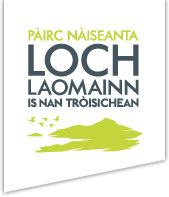
Local Economy
The National Park’s landscapes, natural environment and cultural heritage are at the heart of the tourism economy here, but the way that people currently visit the National Park is not sustainable or compatible with tackling the twin climate and nature crises. How people want to experience the National Park is also changing with more people looking for sustainable tourism options.
Challenge
Tourism and hospitality businesses in the National Park need to respond to these changes but are also operating under difficult circumstances such as escalating costs, and challenges recruiting staff.
The number of second homes and short-term holiday lets in the Park has increased in recent years and some people are concerned that this is not leaving enough homes for people to live and work here. Lack of transport is also a barrier to people, particularly young people, being able to work in the Park.
Communities should be able to influence and benefit from the changes to the National Park’s economy and the opportunities to grow community wealth. However, this relies on local people having the confidence, skills and time to volunteer to get involved in community action.

Solution
The National Park’s rural economy must adapt to the nature and climate crises, becoming greener, more diverse and more equitable, generating more wealth for the local communities.
Many businesses are already taking steps to reduce their carbon footprint by making changes to their energy usage and waste systems and using local supply chains. The tourism sector needs to continue to do this to support both the environment and adapt to the growing interest in sustainable tourism.
Alongside tourism, we also need to grow nature-based jobs, particularly with changes to how land is used. More green skills and expertise will be needed in areas such as digital, transport, renewable energy and construction. Partners in the National Park must work together to explore what is needed.
Small businesses, community organisations and social enterprises could become a bigger part of the National Park’s economy, helping to create and circulate local wealth.
Ensuring communities are supported to maintain and build capacity in their local community organisations, through supporting more local people, including young people, to get involved could result in more social enterprises being established and create local job, training and skills development opportunities.
Goal
A greener, more diverse rural economy which supports local communities and businesses to thrive, with opportunities for more people to live and work in the National Park, while also doing more for climate and nature.
Steps to take
- Increase sustainable tourism
- Support low carbon businesses
- Grow green & nature-based jobs and skills
- Build community wealth
- Enable more local living and working
- Support more Regenerative Land Use
- Invest in Nature Restoration
- Encourage land use that benefits everyone
Progress Update
Steps are already being taken to deliver against these goals.
The Oak Tree Inn, in Balmaha, is a great example of a local tourism business taking action to address the climate emergency, whilst continuing to develop their business.

